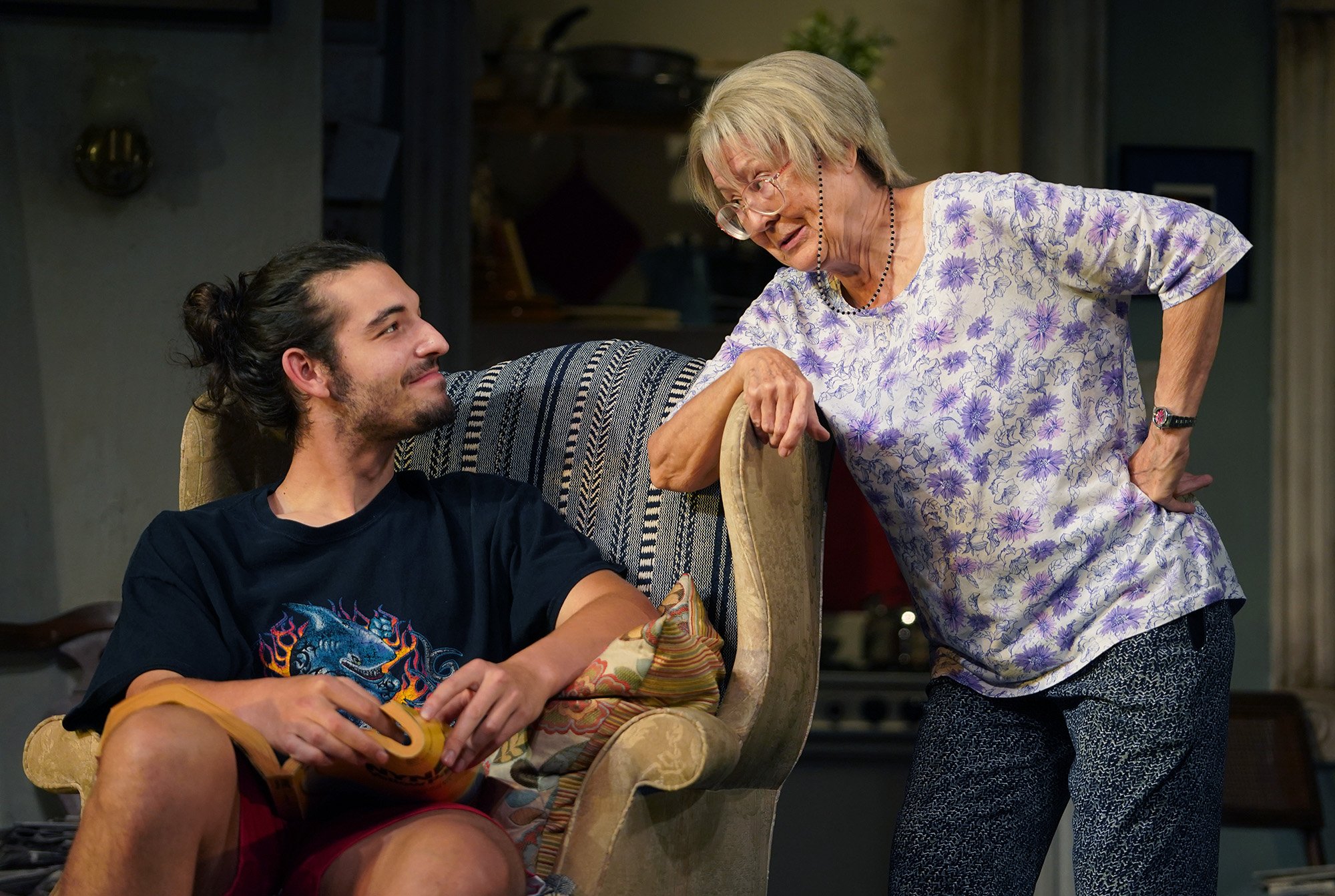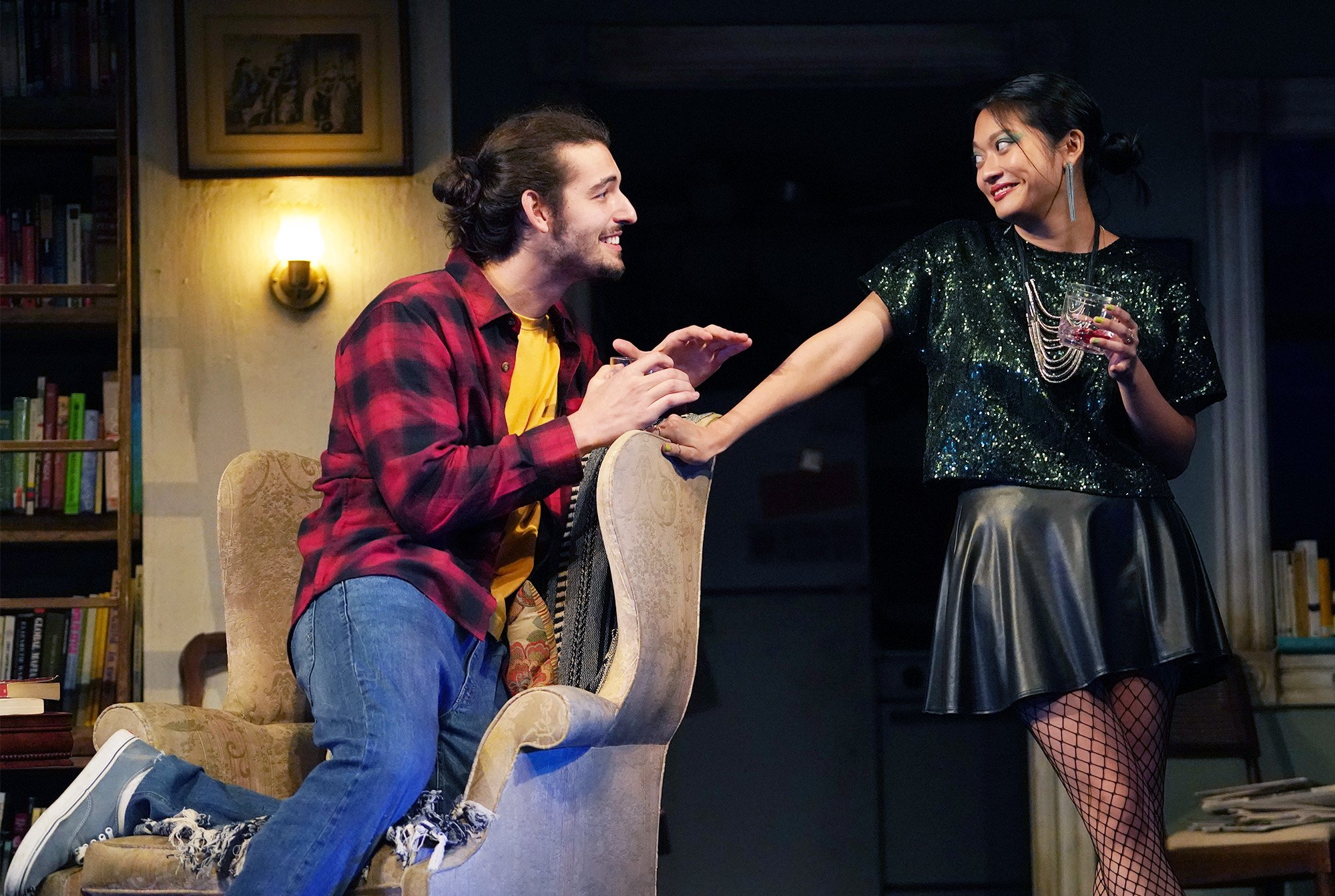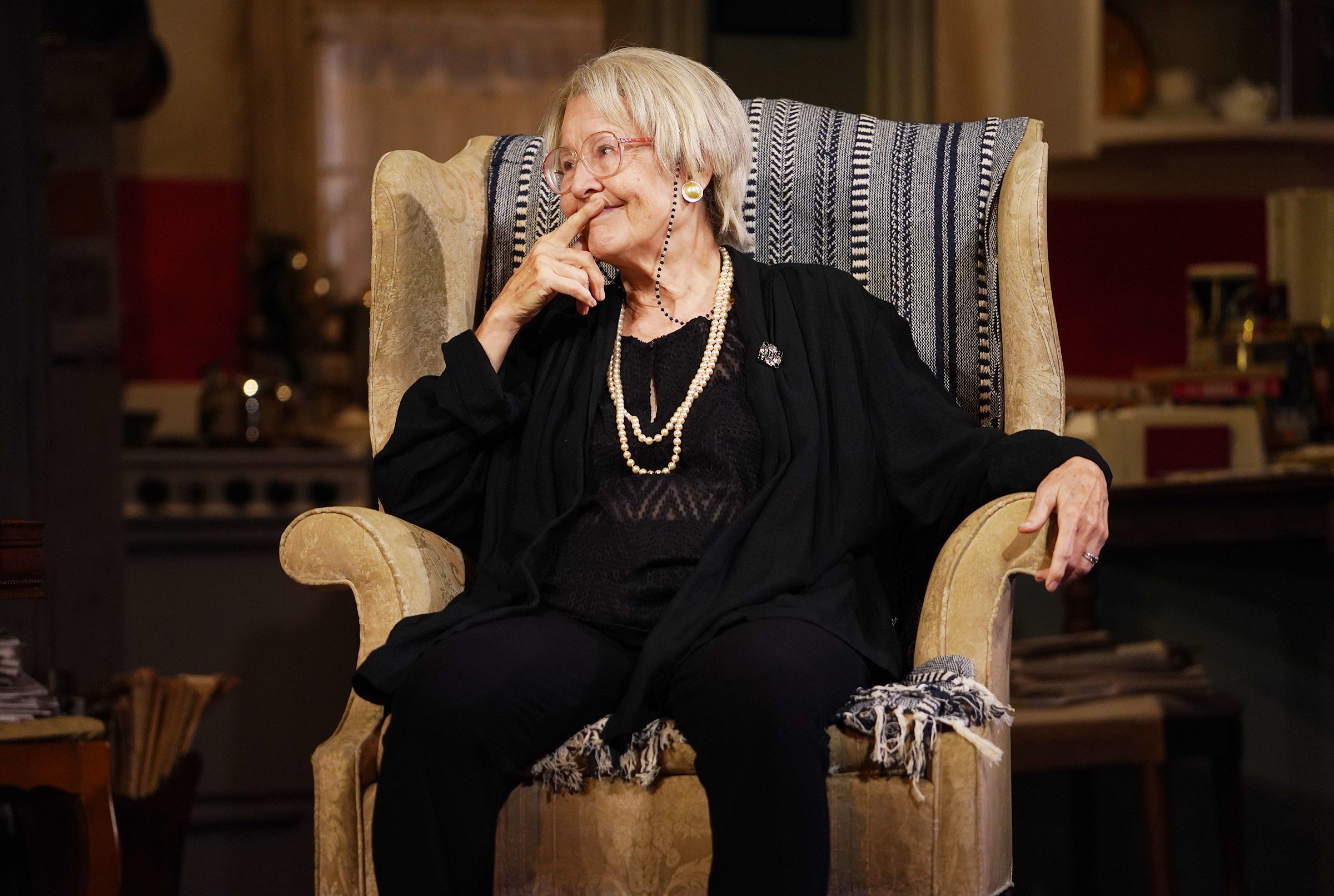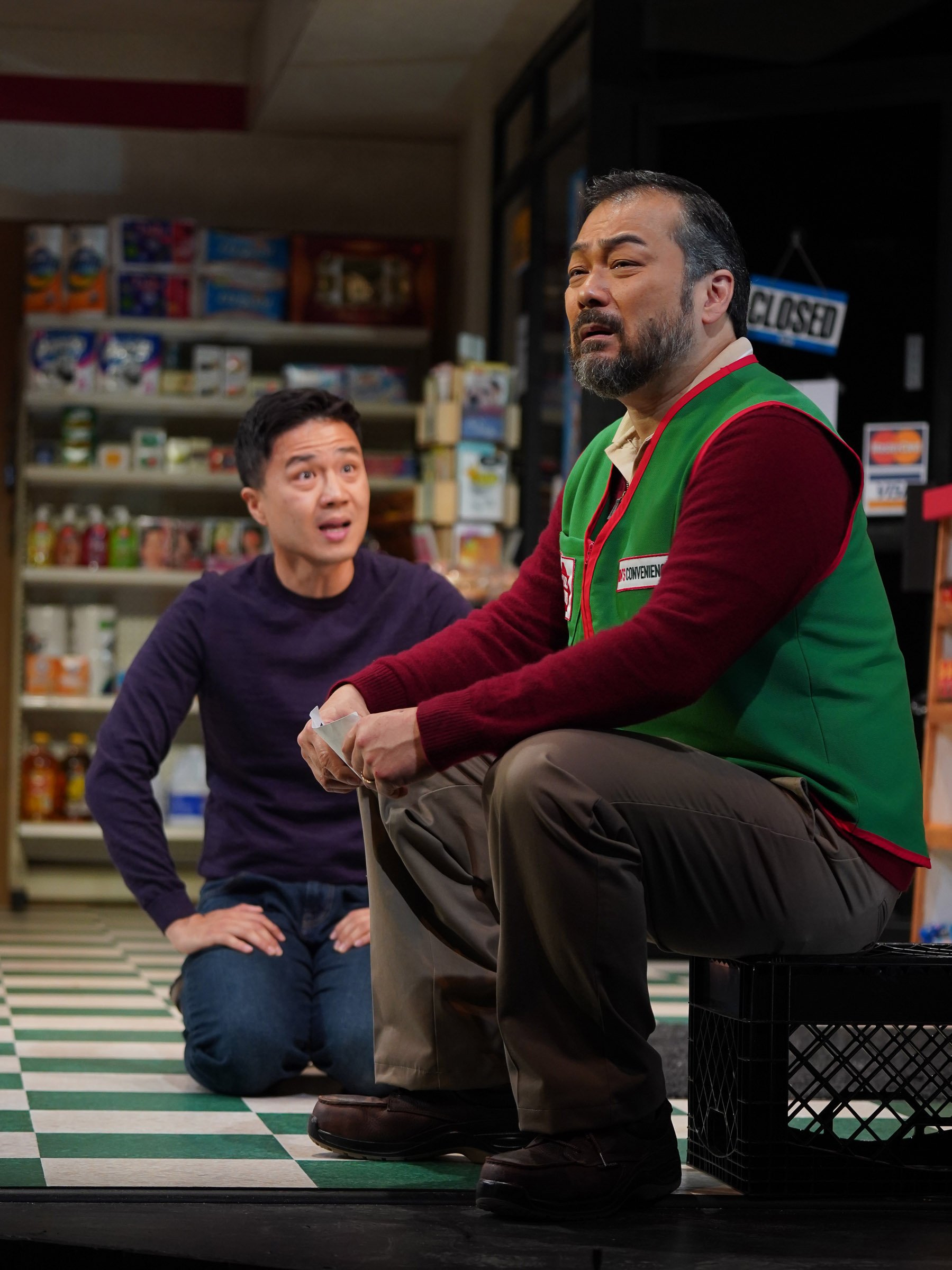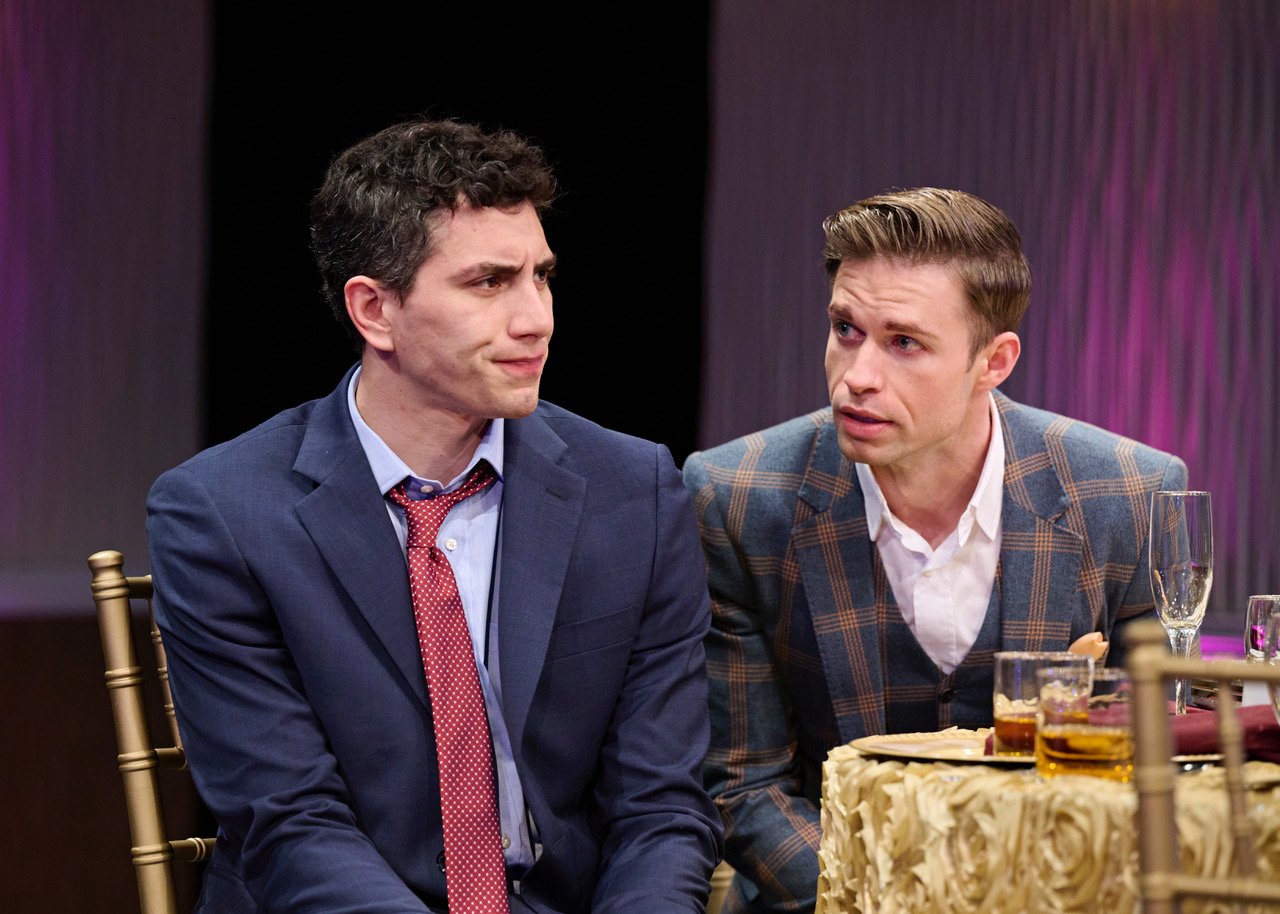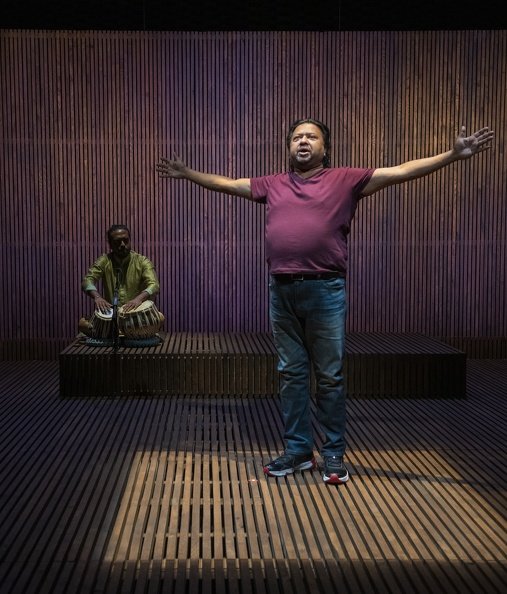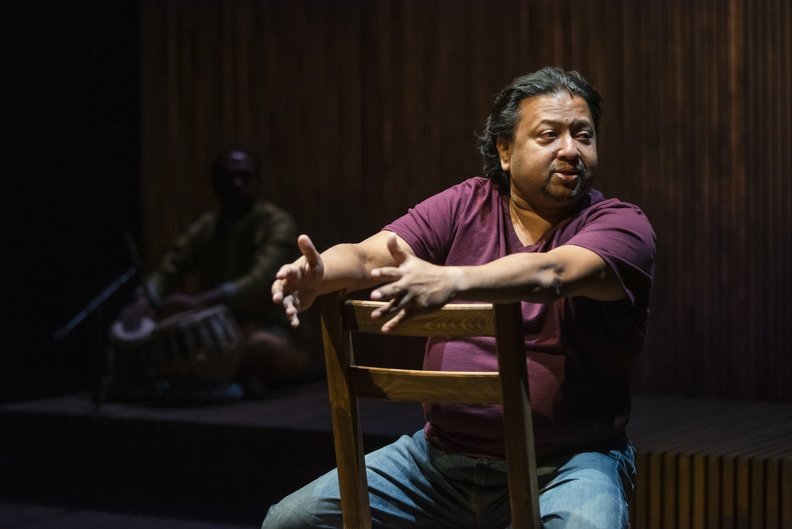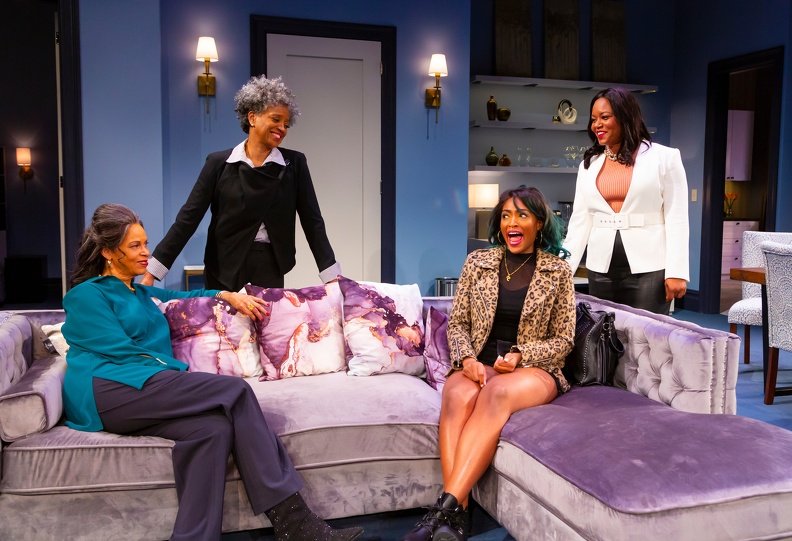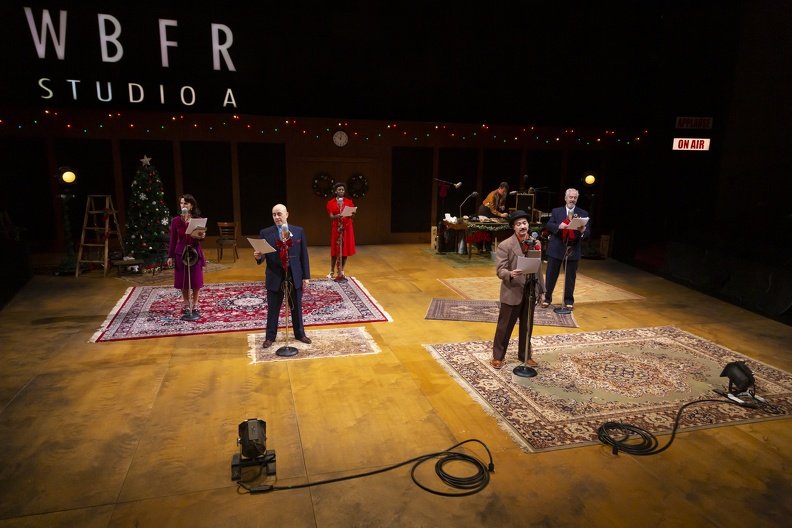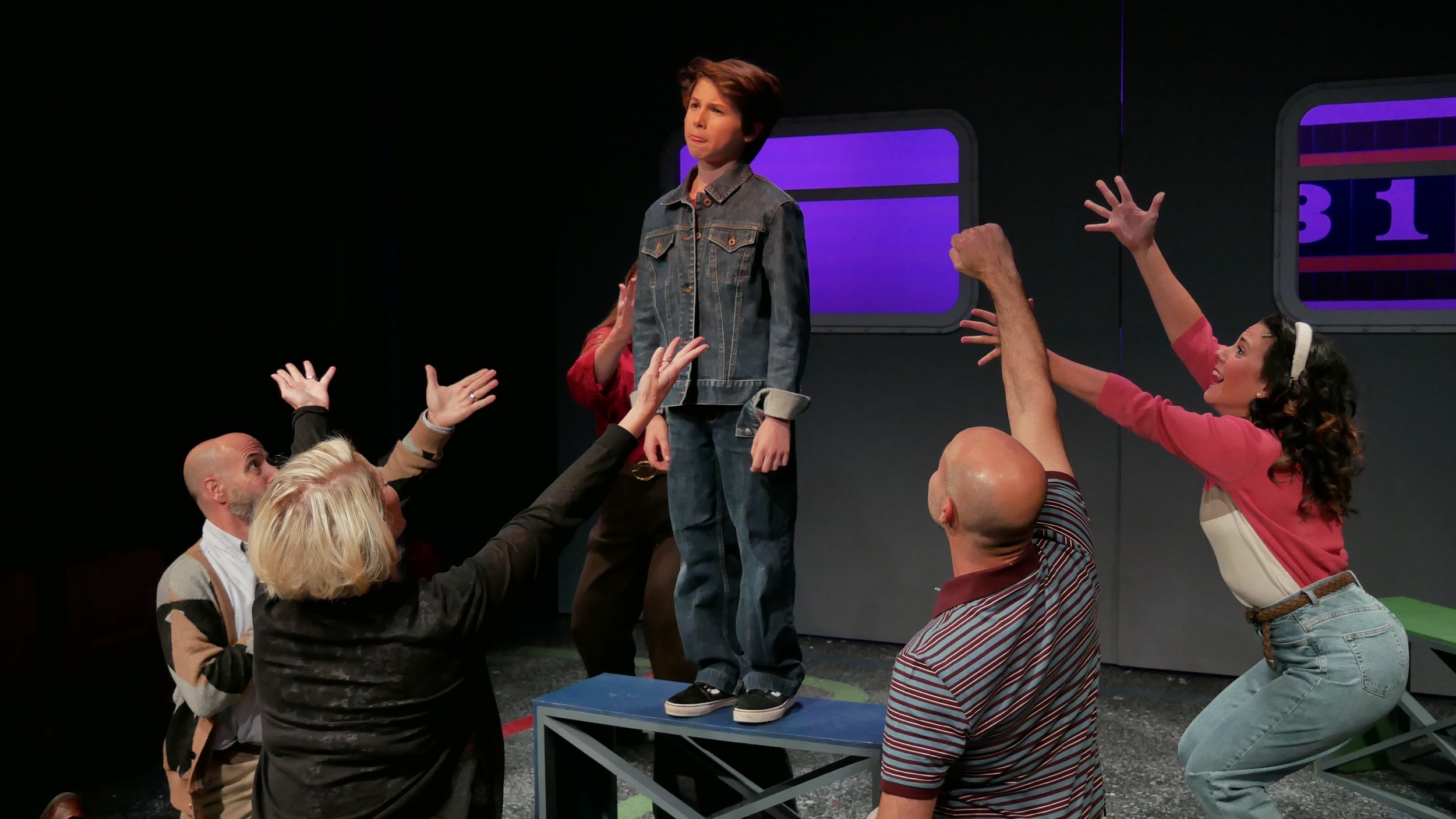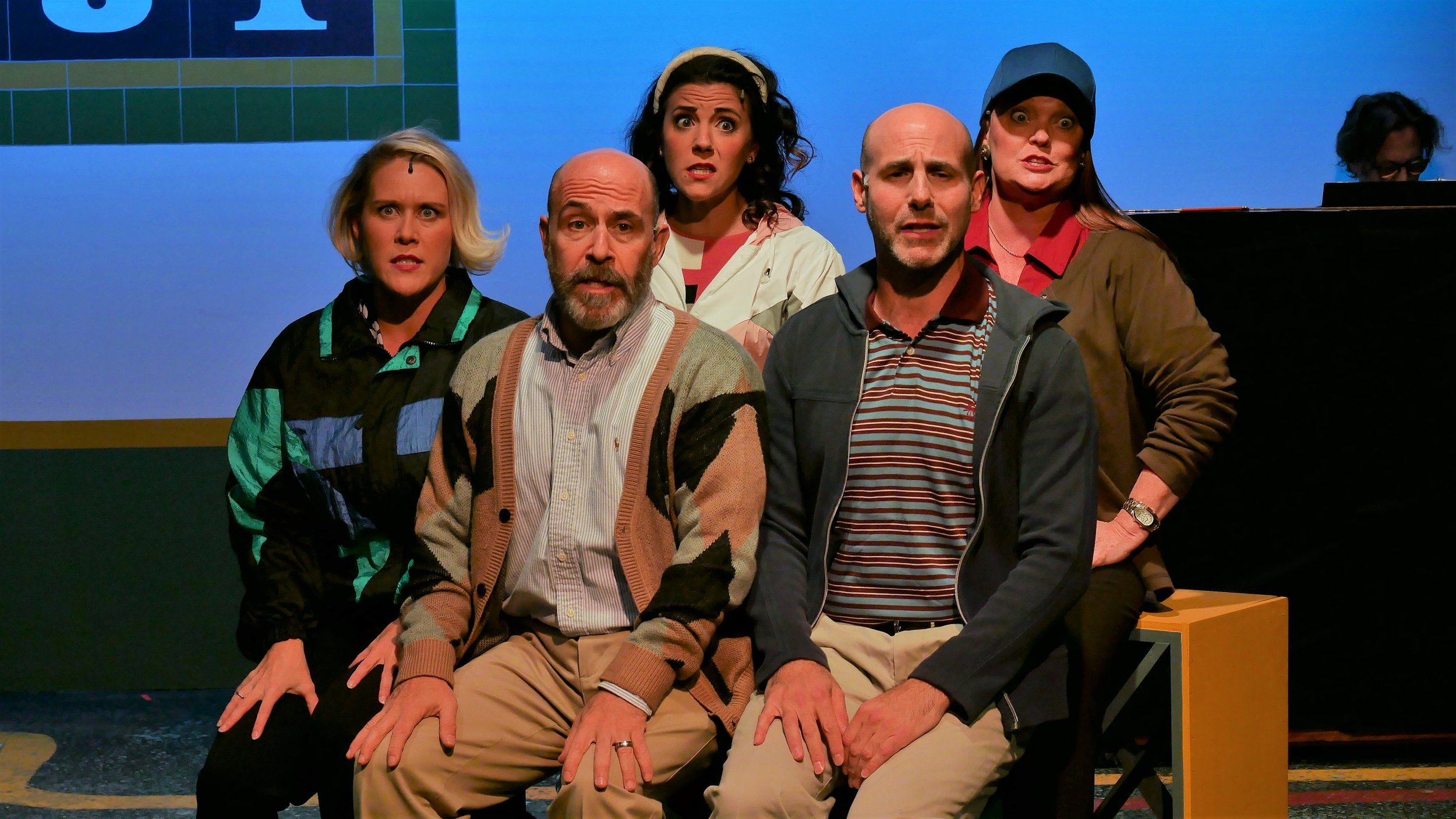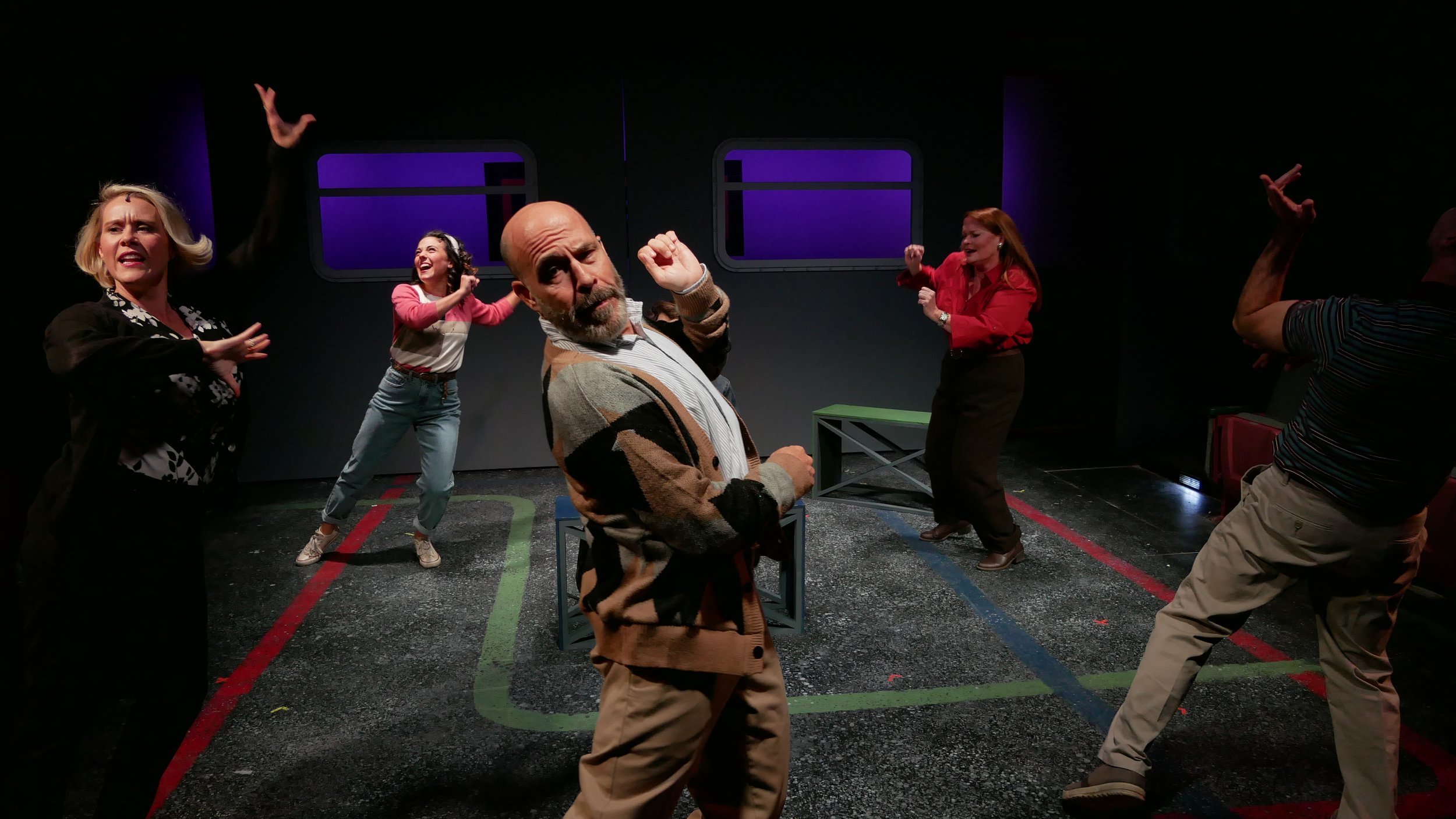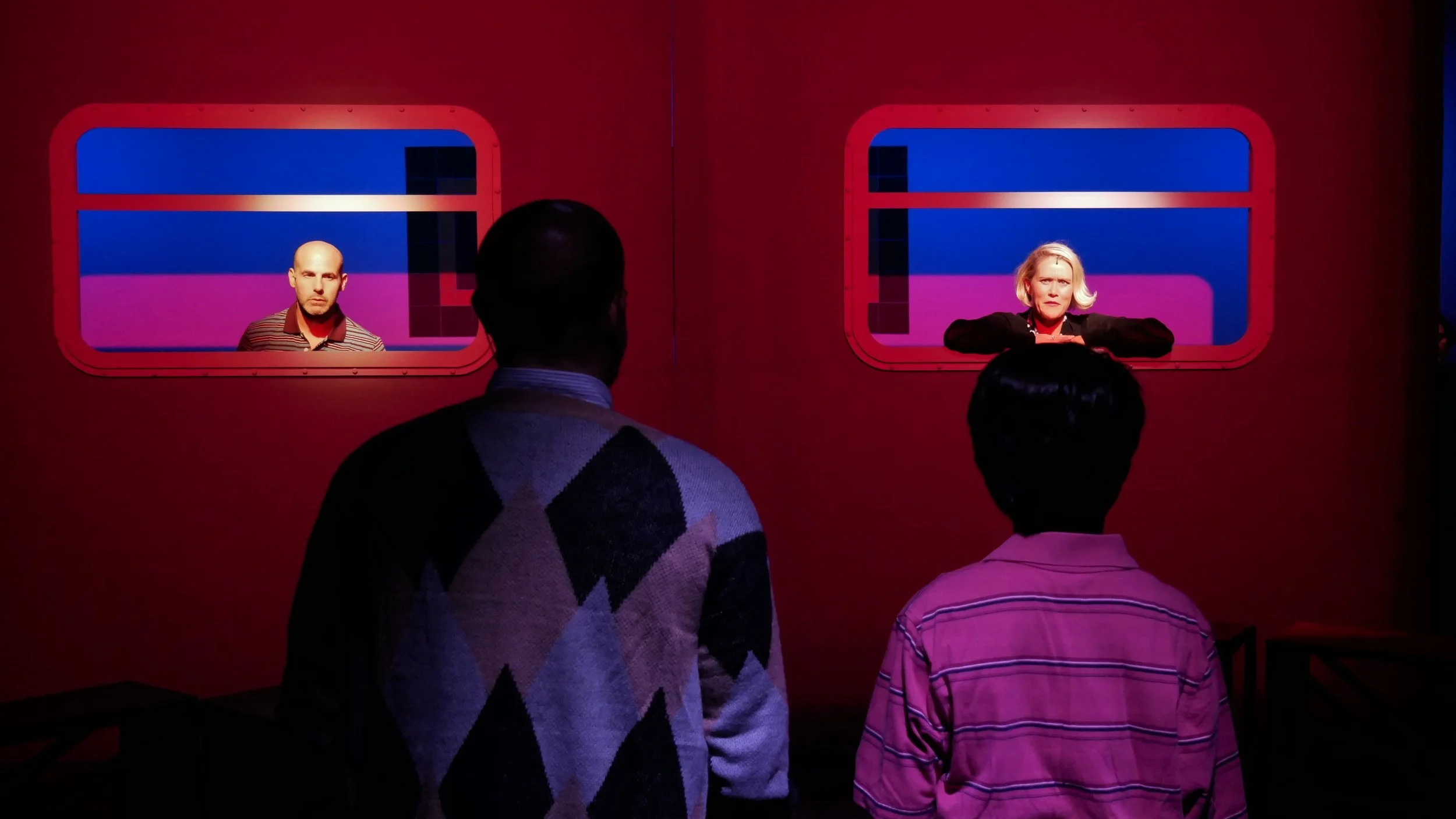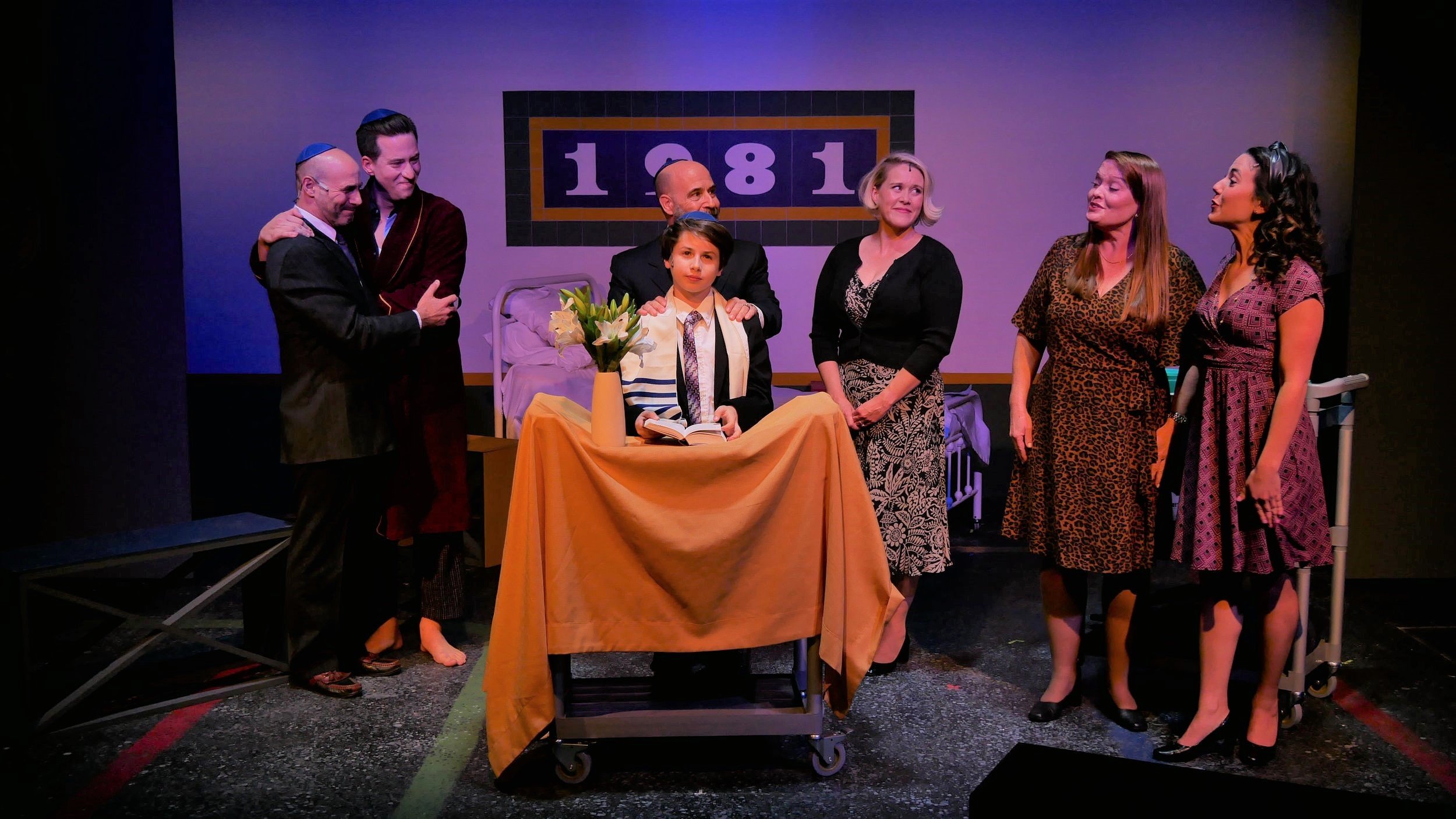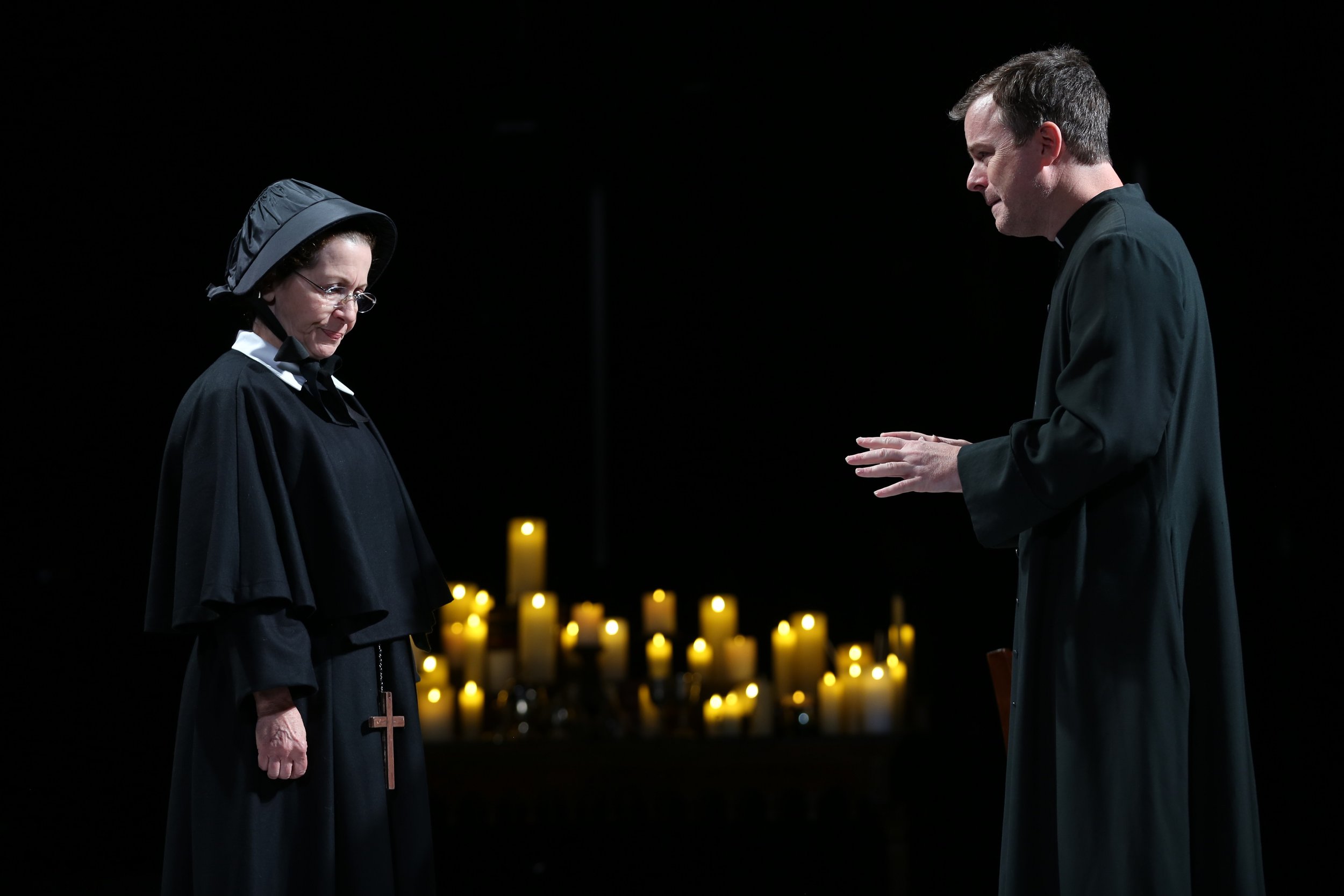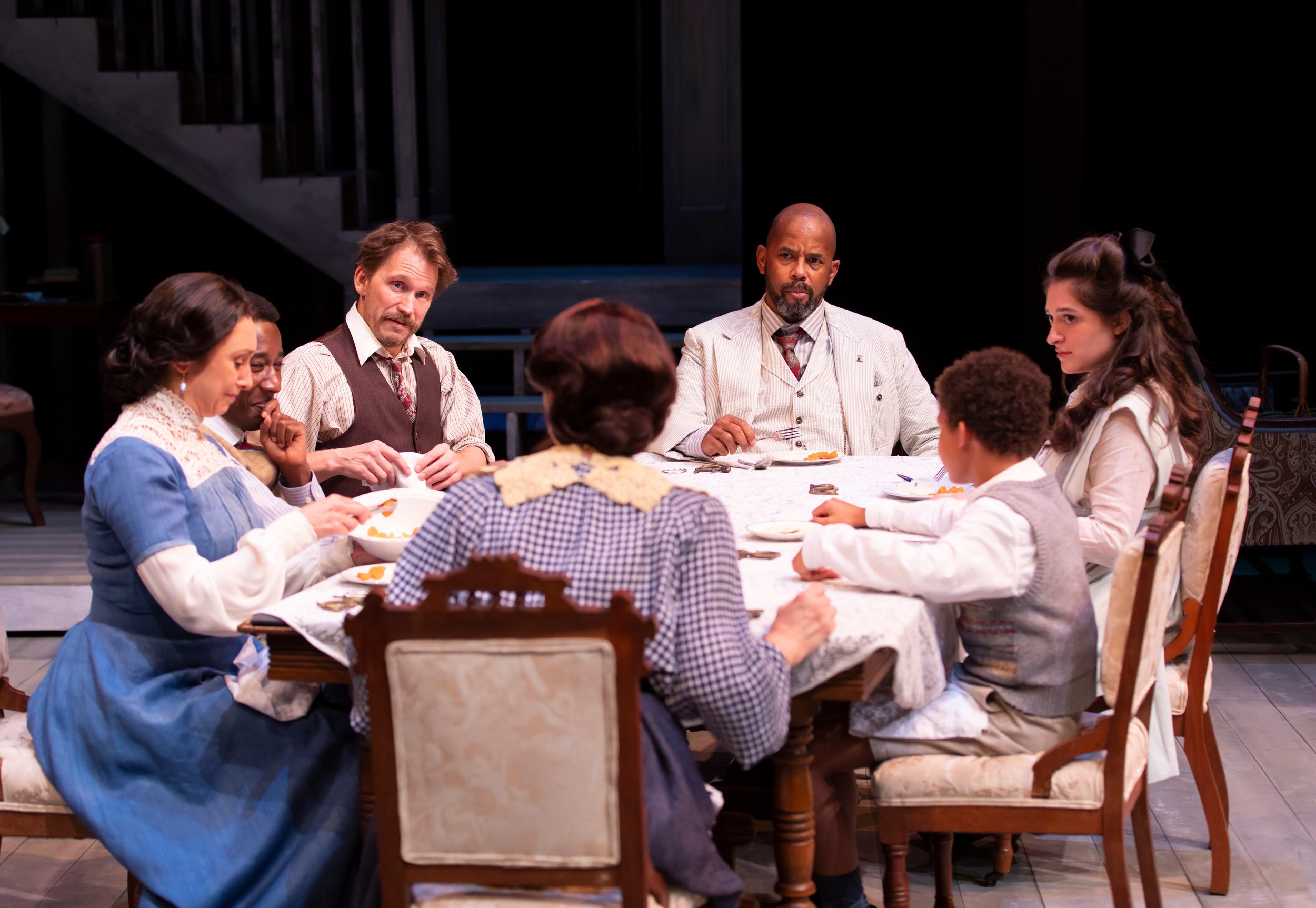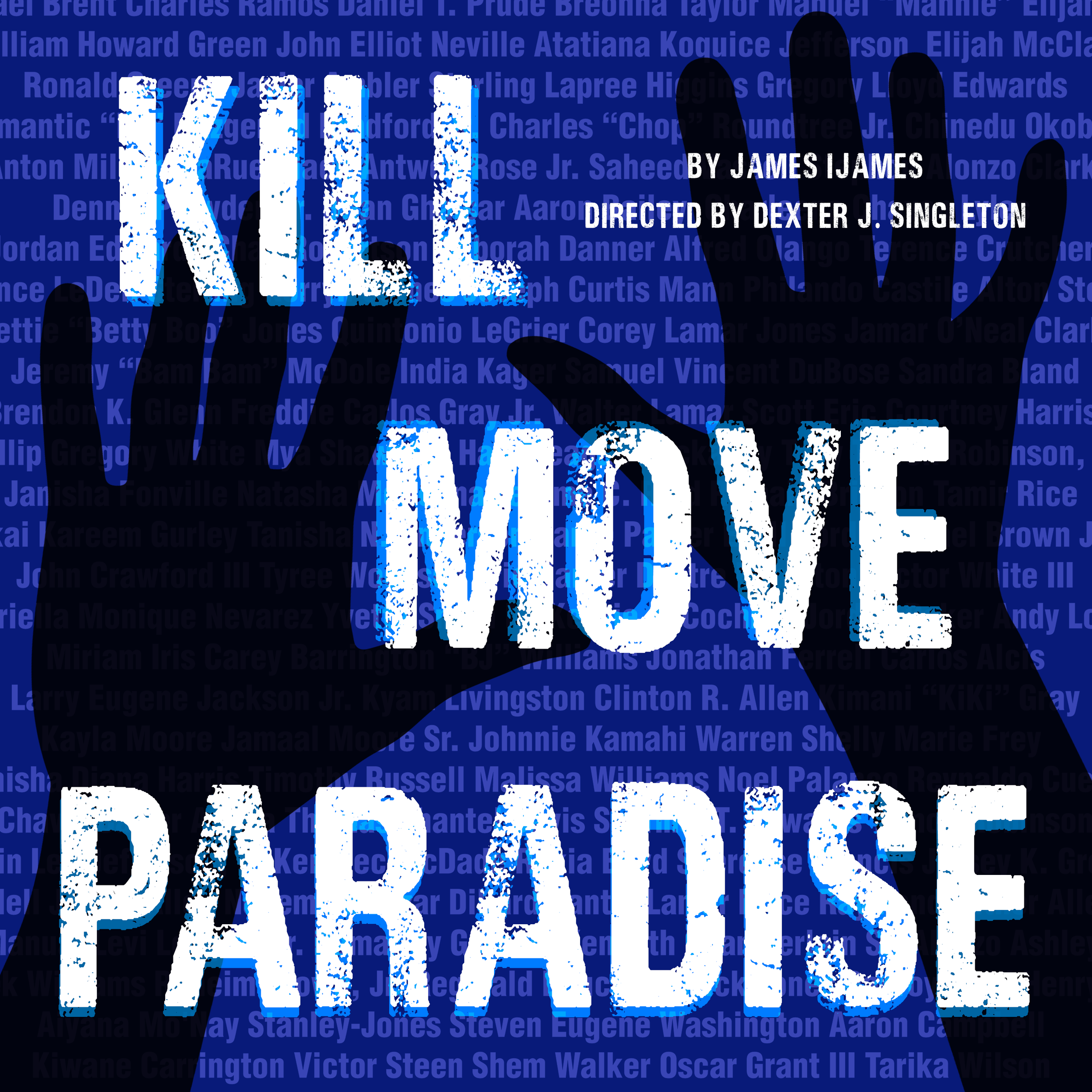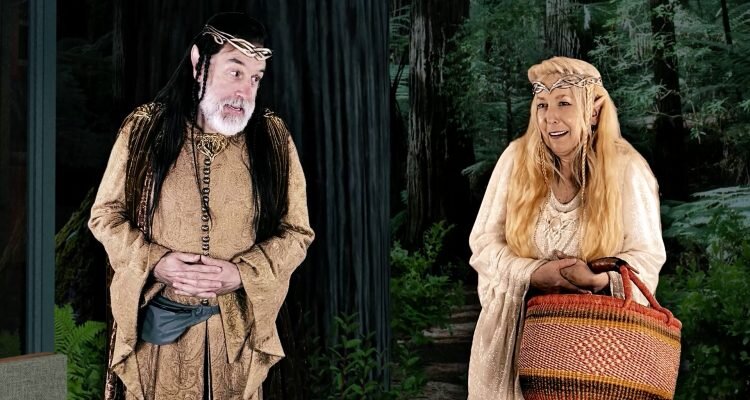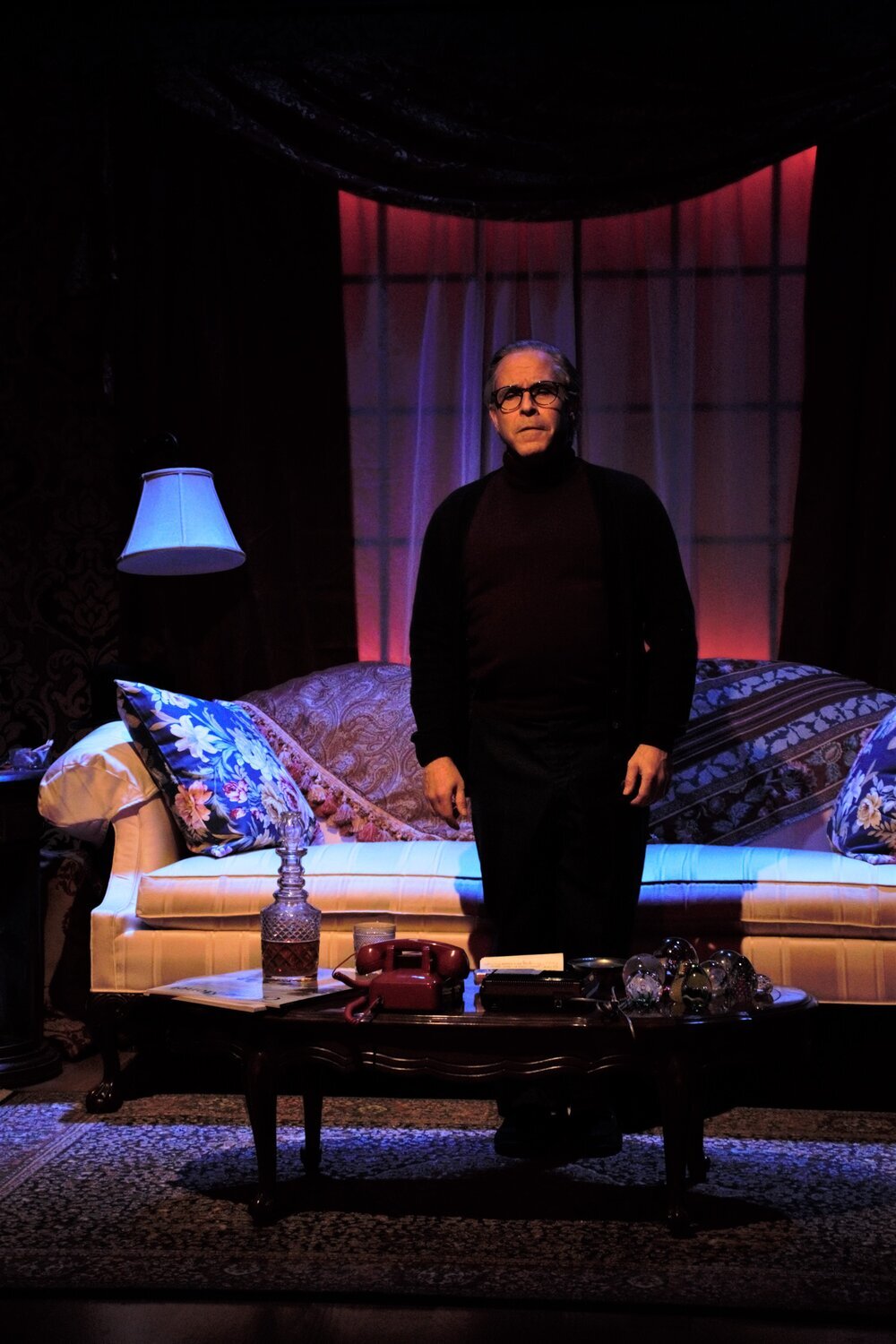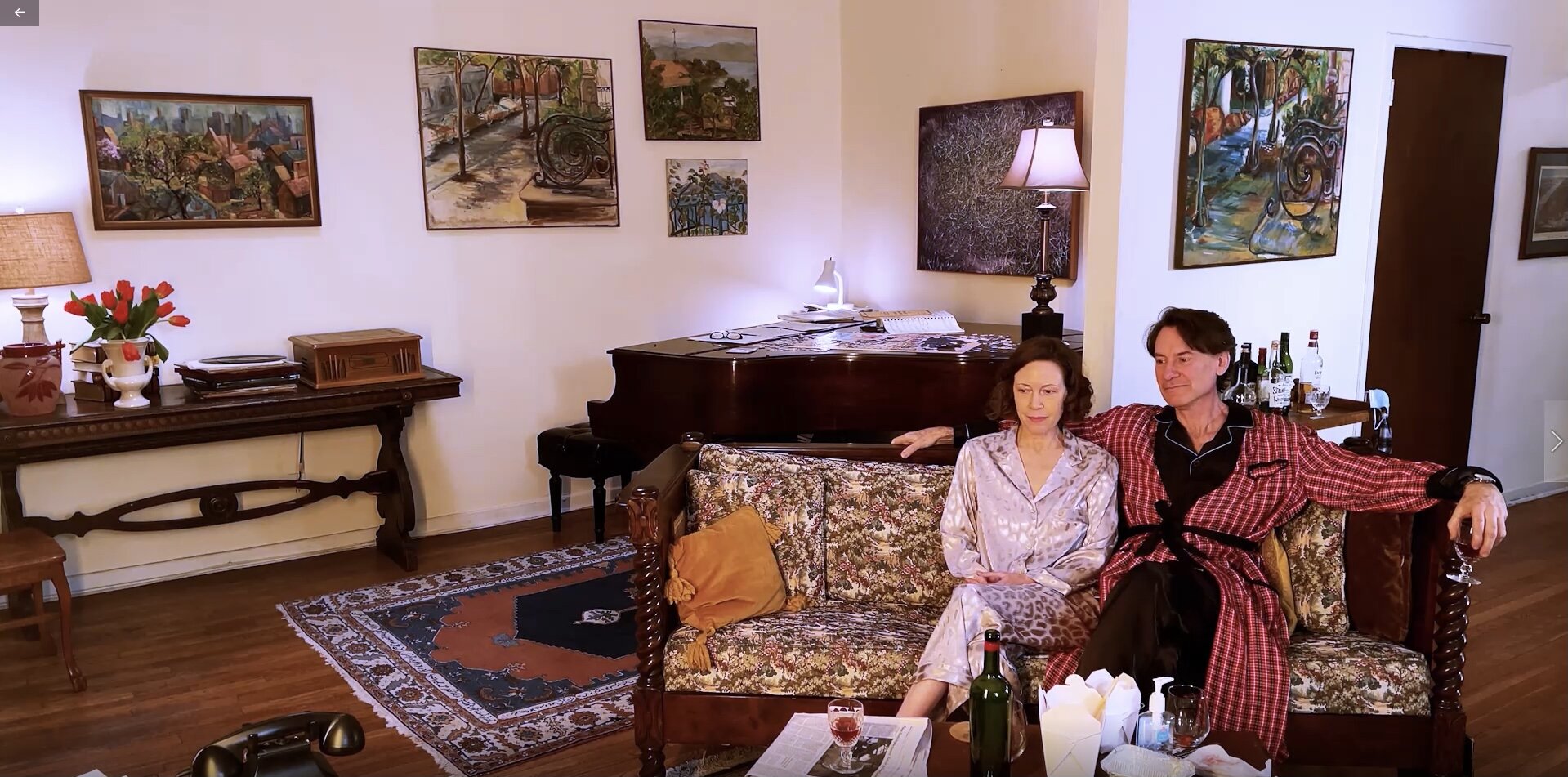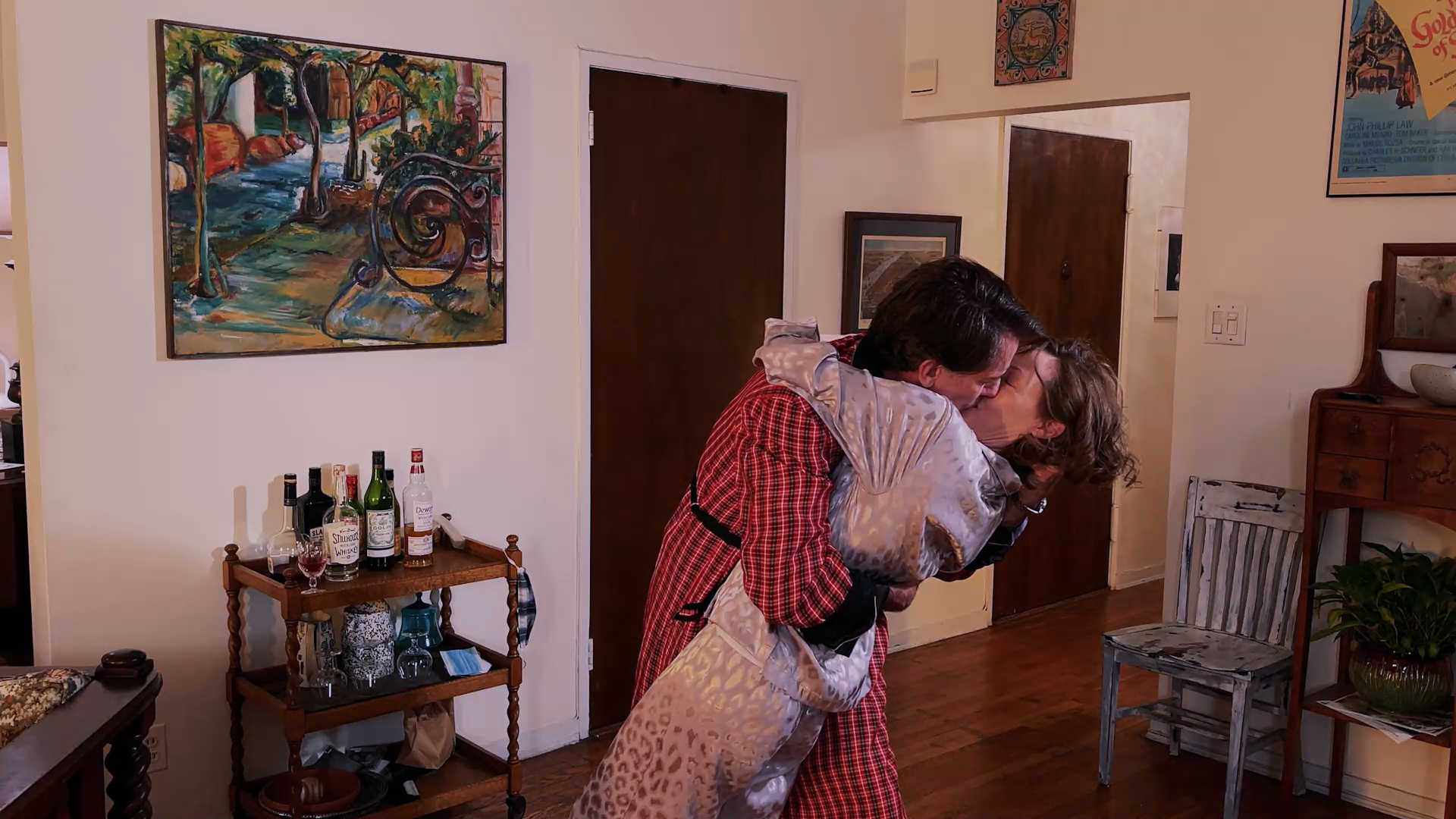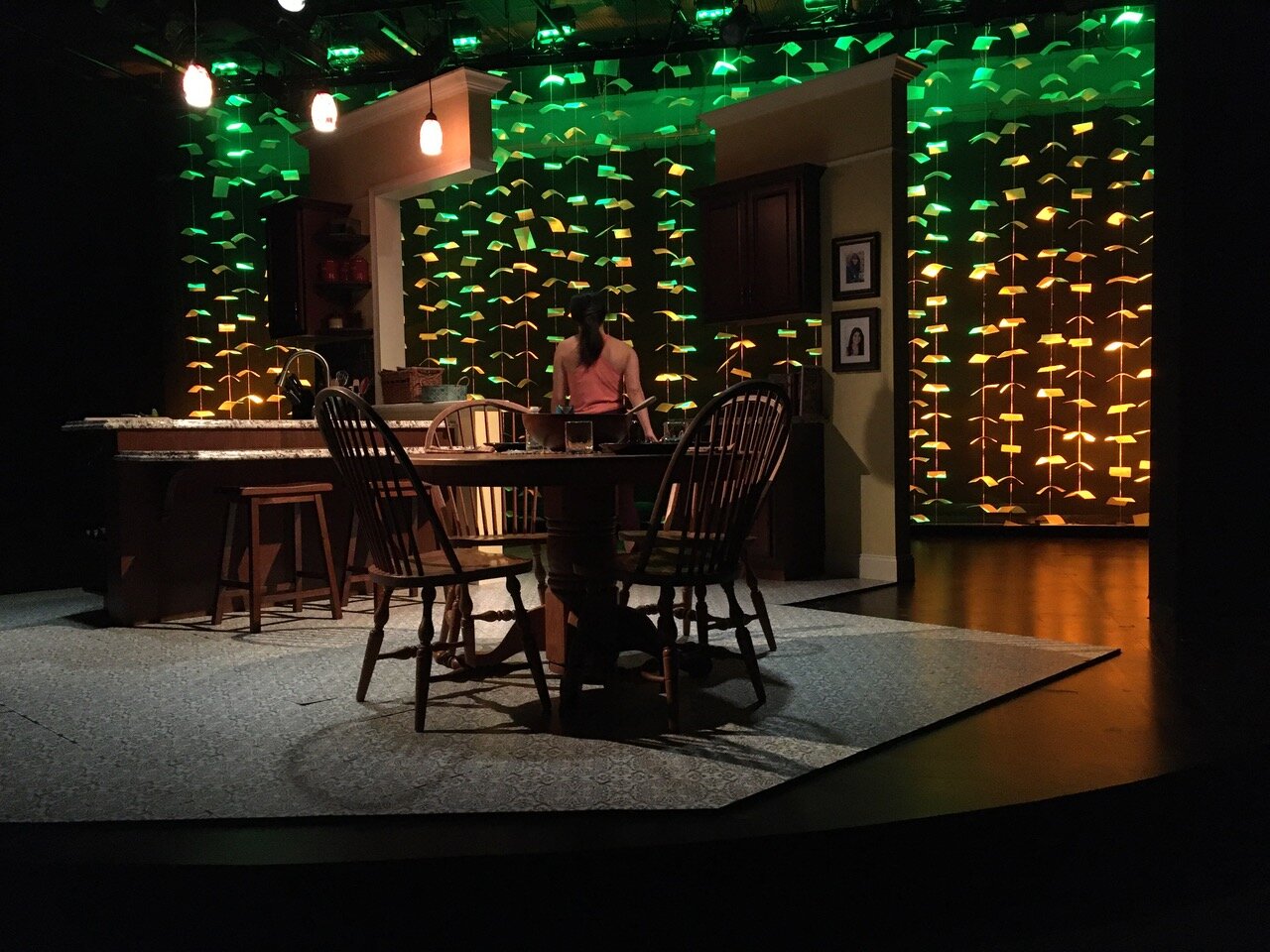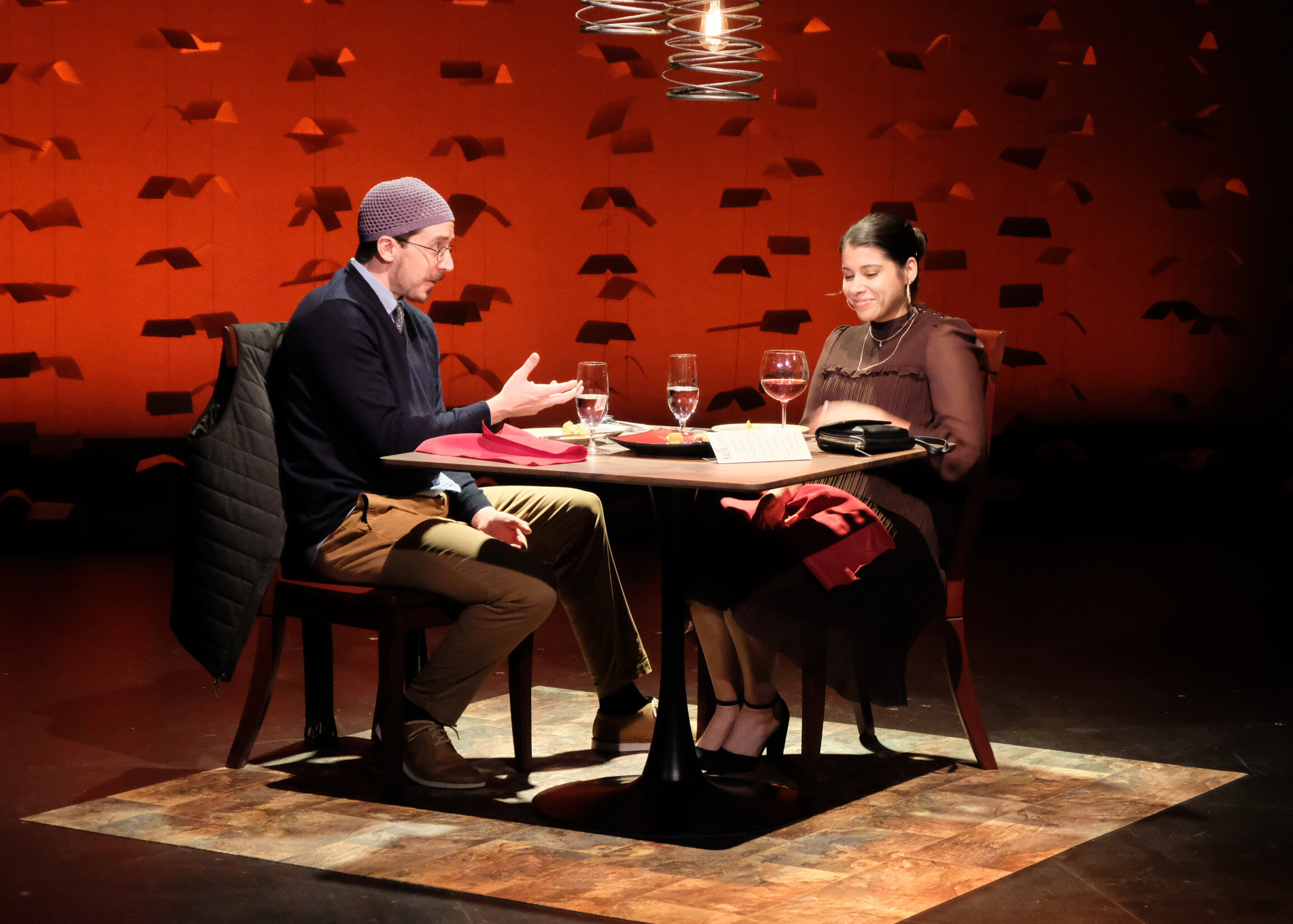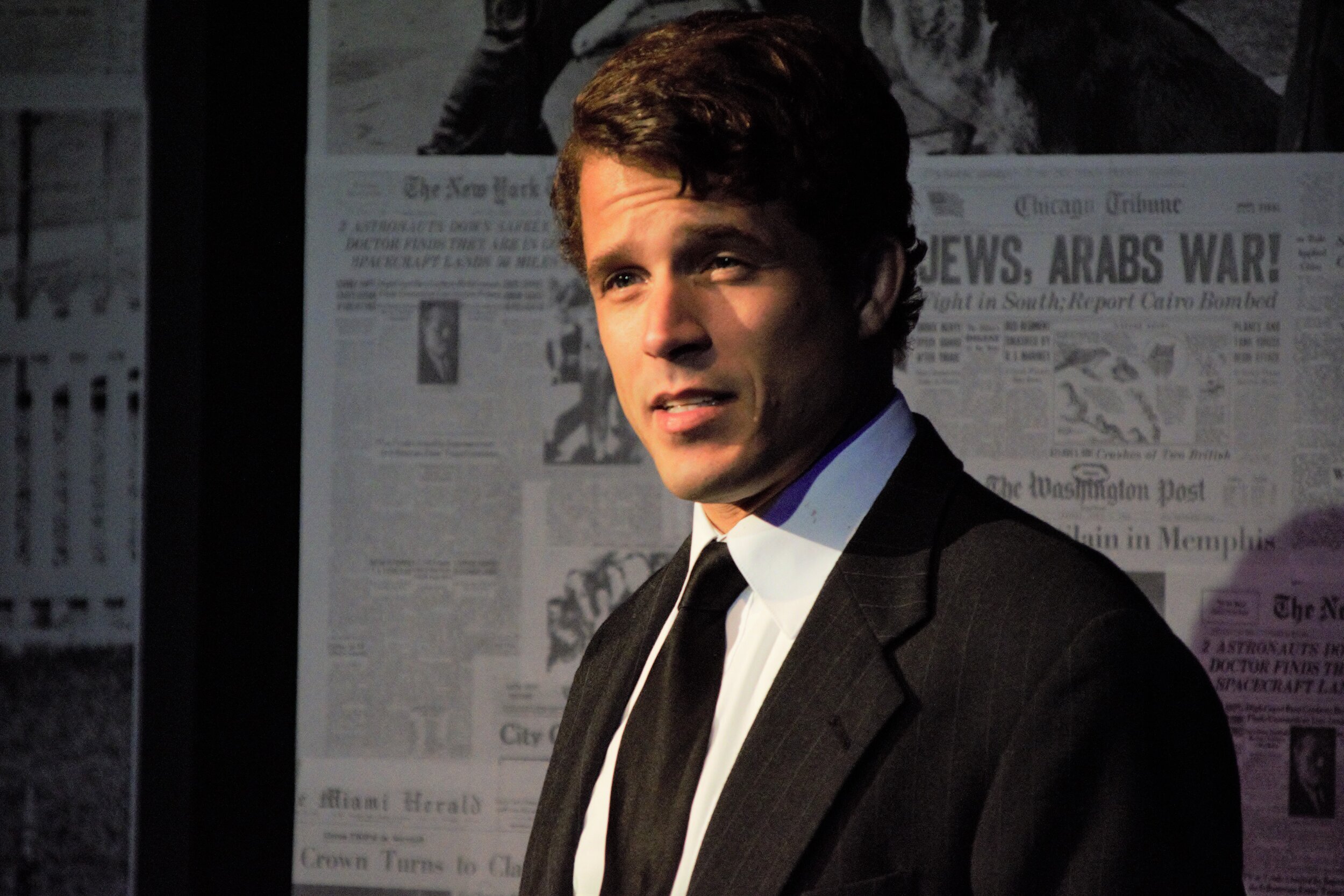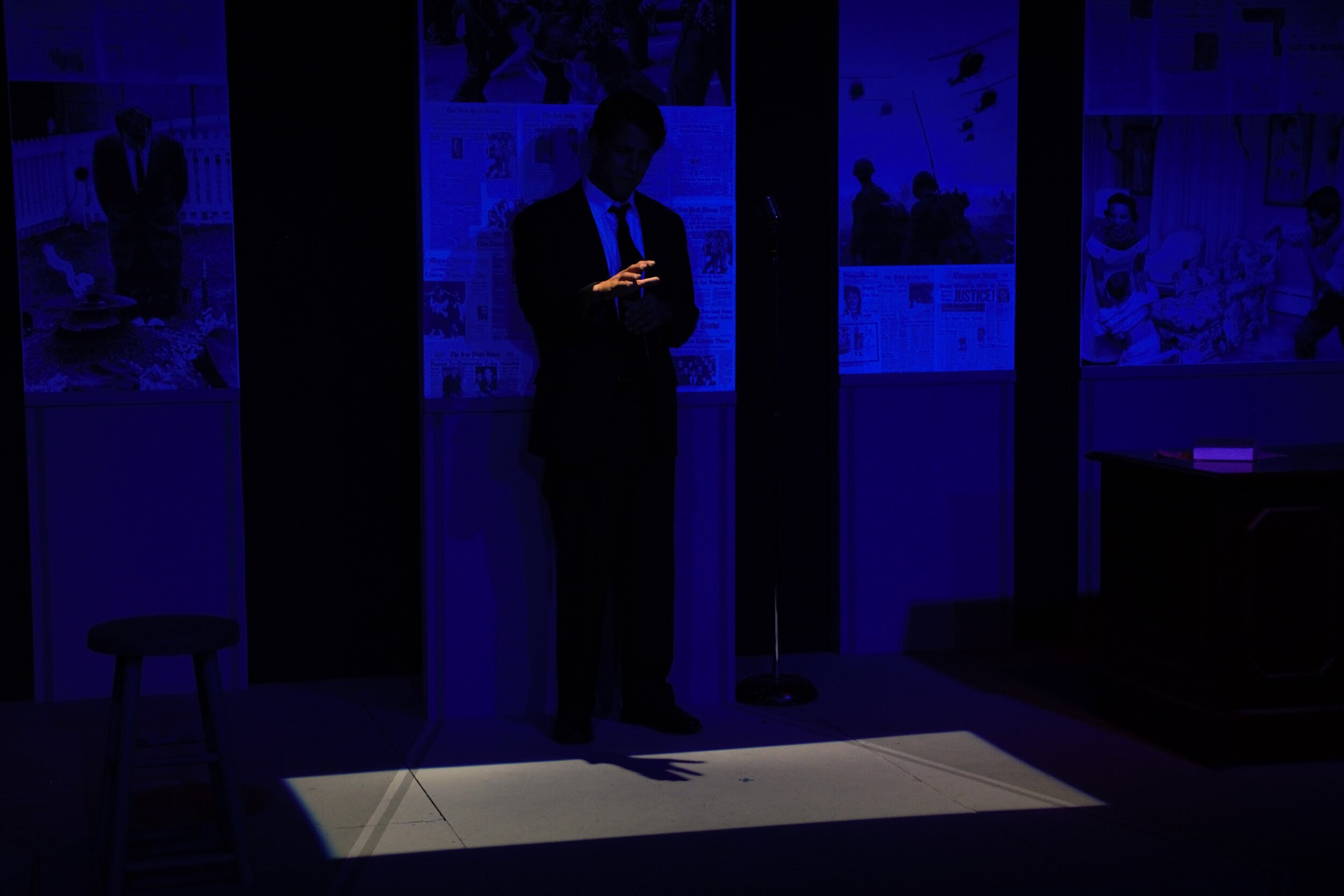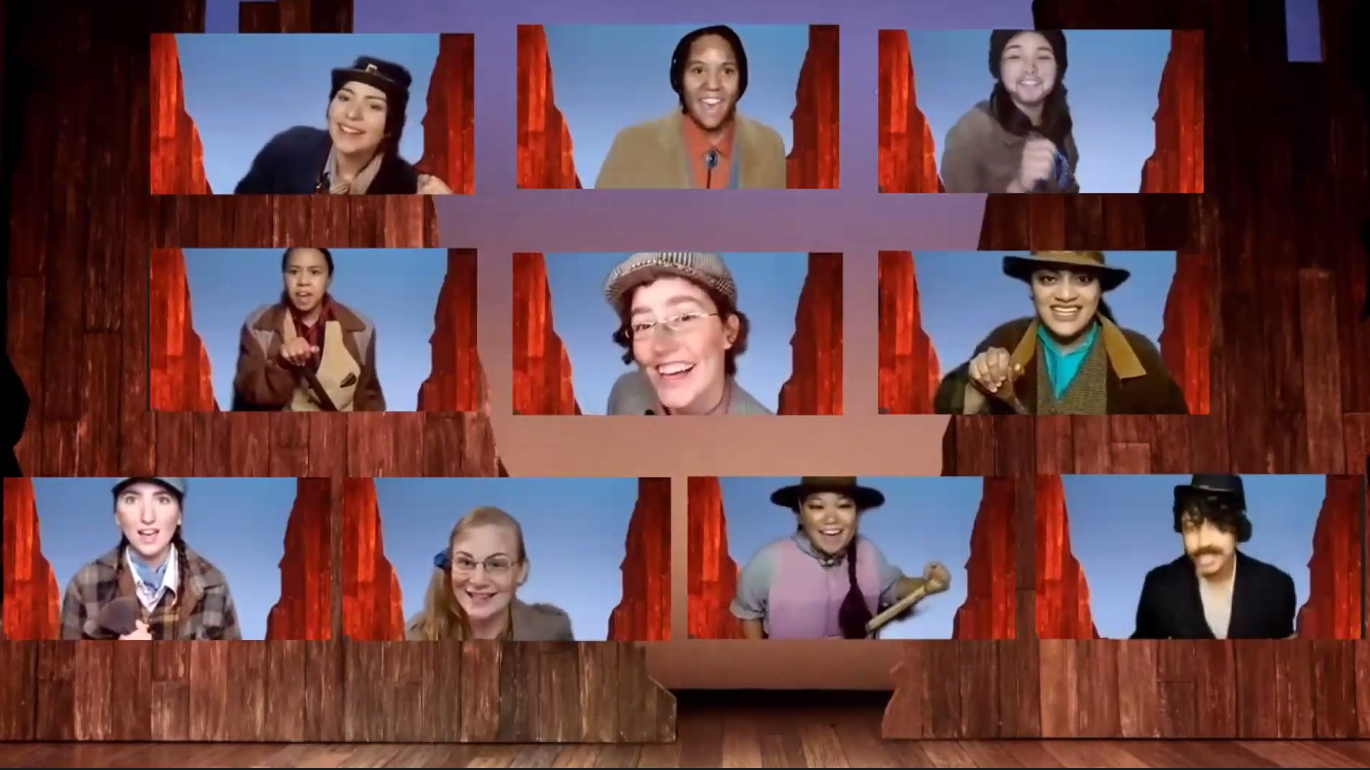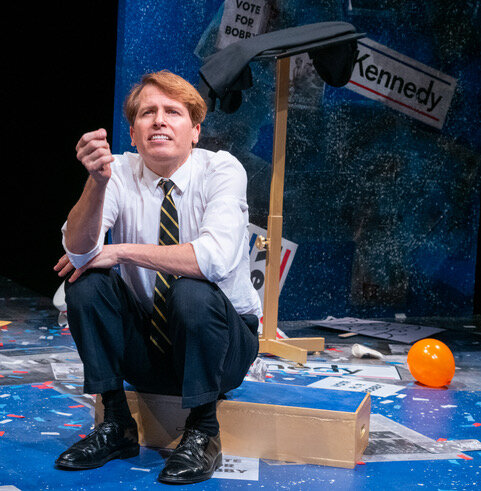Review of 4000 Miles, Westport Country Playhouse
4000 Miles, Amy Herzog’s popular intergenerational play from the early 2010s, is up at Westport Country Playhouse in a handsome production with lead performances worth seeing, particularly the versatile Mia Dillon. It may be the least confrontational play I’ve seen David Kennedy direct, but that’s not to say the script is wholly benign, it’s just that strong issues and gut-wrenching dramatic turns are in short supply. It’s a family comedy-drama in which a young man, Leo (Clay Singer), 21, has biked cross-country from Seattle to Manhattan. He drops in unexpectedly on Vera, his 91-year-old maternal grandmother, after a rebuff from his girlfriend. The play meanders through the time Leo and Vera spend together as Leo tries to put his life back together after a series of events running from awkward to devastatingly traumatic has more or less derailed him. But not from keeping fit, keeping active, and trying to live his best life.
Clay Singer as Leo, Mia Dillon as Vera in Westport Country Playhouse’s production of 4000 Miles, directed by David Kennedy (photo by Carol Rosegg)
The charm of the play is in how it lets us see Leo through Vera’s eyes and Vera through Leo’s but also lets us make up our own minds about how we might relate to either. Which is a way of saying that whether you’re closer to your twenties or closer to your nineties or somewhere in the huge middle ground, you might find yourself veering from one side to the other. Not that the “sides” are that clearly demarcated. It’s more a question of how families imagine themselves and the places of the people within them. Leo is stepping away from whatever has been expected of him up till now, while Bec (Lea DiMarchi), his sometime girlfriend, is stepping away from him. And Vera, not all that cuddly, gets to relearn patience and compassion in dealing with the markedly younger generation.
The support Leo gets from Vera is prickly, most of the time, but that’s to be expected. She’s getting up there and sometimes “loses” her words and sometimes just gets irritated with all the things there are to be irritated about—like computers and her bossy daughter and the loss of the last of “the octogenarians” (a sort of old-age support group we could use a flashback scene with) and her phone-buddy/neighbor who is “a pain the ass” but one of the few dependable people in her life. It’s a life that hit its prime when it was cool and progressive to be a Communist, or “Lefty” (like, the 1940s), and now just looks on from a spacious rent-controlled apartment—with great bookshelves, a skylight, and lived-in clutter (Arnulfo Maldonado, scenic design) with a great view we don’t get to see. It’s a wonder she doesn’t have people staying over with her all the time. How could she refuse to share?
Clay Singer as Leo, Mia Dillon as Vera in 4000 Miles, at Westport Country Playhouse, directed by David Kennedy (photo by Carol Rosegg)
Early in the play, after an opening scene that feels really awkward and off-balance (as it’s meant to), Clay Singer floats a truly charming smile as he says “grandma” and for a second we see Leo as he might have been as a kid saying the word for the first time or at least remembering what it was like to be a kid who could charm the old girl. From that feeling comes most of the best stuff in the play, as when Vera simply beams at Leo for remembering what his deceased grand-dad’s voice sounded like. There are of course tensions and misunderstandings and jumping to conclusions but people who have been spouses, partners or roommates for years often have worse. Dillon and Singer create an odd couple—he’s very tall, she’s not; he speaks with a kind of surfer-stoner rhythm that is never in a hurry to get anywhere and he often smiles at his own words as though simply fond of his own voice; she’s a New Yorker and stringent, acerbic and energetic. The chemistry works and this production takes its time, letting the characters grope toward each other.
Lea DMarchi as Bec, Mia Dillon as Vera in 4000 Miles, at Westport Country Playhouse, directed by David Kennedy (photo by Carol Rosegg)
There are two roles for young actresses, and neither role is as good as it might be. The scene in which Bec seems to drop from the sky onto the couch with Vera doesn’t do much to make the character useful. Her scene much later, mostly with Leo, is better because it comes as an important culmination for this couple who have been through some hard things. It’s to Lea DiMarchi’s great credit that she is able to develop her character believably in the space of two scenes very different in mood and placement within the play. The other supporting role features Phoebe Holden as a quick pickup named Amanda, a Parsons student aiming to be an arts celebrity. The scene tries to interject some comical sexy moments and maybe even a look askance at the dating styles of the newish century, but finally collapses into odd quirks—and makes us wonder why Leo would think it’s OK to start up the sexual machinery on his grandma’s couch when she’s just down the hall. Not that we’re really surprised by anything Leo does or doesn’t do.
Clay Singer as Leo, Phoebe Holden as Amanda in 4000 Miles, at Westport Country Playhouse, directed by David Kennedy (photo by Carol Rosegg)
In any case, Amanda has cool clothes (Maiko Matsushima, Costumes) and ties into a very undeveloped subplot concerning Leo’s feelings for his adopted—of Chinese descent—sister. And that bit of characterization—if that’s what it is—is a good example of how some choices in the play feel a bit questionable. As if the mark of a “good play” is the unexpected detail, the odd, juicy tidbit dropped into conversations for the sake of “interest.” Such details feel a bit scattershot when what we might really benefit from is Leo and Vera hashing out what’s like to be starting out in and coming to the end in a particular family with all its particular baggage. When they do hit moments that matter, Dillon and Singer deliver, as when Leo tells what happened to his friend and his gutsy reaction, or when Vera finally says something nice about her neighbor.
It's good that the play ends as it does, otherwise we might want to show up next week to see what else Leo learns about Vera’s past and what else Vera finds out about Leo’s relationships. As it is, 4000 Miles is only playing through next weekend so get the goods while you can.
Mia Dillon as Vera Connell in 4000 Miles, Westport Country Playhouse, directed by David Kennedy (photo by Carol Rosegg)
4000 Miles
By Amy Herzog
Directed by David Kennedy
Featuring Mia Dillon
Scenic Design: Arnulfo Maldonado; Lighting Design: Carolina Ortiz Herrara; Costume Design: Maiko Matsushima; Sound Design: Fitz Patton; Intimacy Coach: Michael Rossmy; Props Supervisor: Sean Sanford; Dramaturg: Dana Tanner-Kennedy; Production Stage Manager: Shane Schnetzler
Cast: Mia Dillon, Lea DiMarchi, Phoebe Holden, Clay Singer
Westport Country Playhouse
August 23-September 4, 2022
